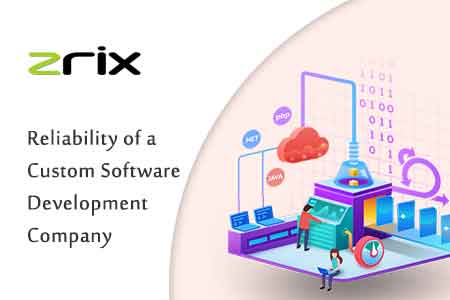In the ever-evolving landscape of technology, the rise of no-code development platforms has been nothing short of revolutionary. These platforms have ushered in a new era of software development, democratizing the process and enabling a broader range of individuals, from business analysts to seasoned developers, to create applications without writing a single line of code. As we cast our gaze towards the horizon, it's essential to explore the future opportunities and potential barriers that the no-code development platforms software market may encounter by the year 2030.
Table of Content
The Ascendance of No-Code Development Platforms: A Brief Overview
Before delving into the future, let's take a moment to understand the remarkable journey that no-code development platforms have undergone thus far. These platforms have already transformed the way businesses operate, propelling digital transformation at an unprecedented pace. No-code platforms empower users to design, build, and deploy applications rapidly, reducing development cycles from months to weeks or even days.
Future Opportunities in the No-Code Development Platforms Software Market
1. Accelerated Digital Transformation: By 2030, no-code development platforms will play a pivotal role in driving digital transformation across industries. Businesses that adopt these platforms will gain a competitive edge by swiftly adapting to changing market dynamics, customer demands, and emerging technologies.
2. Increased Accessibility: The no-code revolution will continue to break down the barriers to entry in the software development arena. More individuals with diverse backgrounds and skill sets will harness the power of no-code tools, fostering innovation and creativity.
3. Enhanced Collaboration: No-code platforms will evolve to facilitate seamless collaboration between IT professionals and business users. This synergy will result in the creation of highly customized, user-centric applications that meet the specific needs of each department within an organization.
4. Expansion of Use Cases: While no-code development initially gained traction in building simple applications, the future will see its application in more complex use cases. From automating intricate business processes to developing AI-powered solutions, no-code platforms will become versatile problem-solving tools.
5. Cost Efficiency: Businesses will reap the benefits of cost savings as they reduce their reliance on traditional development methods. No-code development platforms eliminate the need for extensive coding expertise, saving both time and money.
6. Global Growth: The global reach of no-code development platforms will expand, making them accessible to businesses worldwide. This growth will result in a more interconnected global business landscape.
Potential Barriers on the Horizon
While the future of no-code development platforms is promising, there are several potential barriers that must be acknowledged and addressed:
1. Security Concerns: As no-code platforms become more widespread, the risk of security breaches may increase. Ensuring the security of applications built on no-code platforms will be paramount.
2. Integration Challenges: Integrating no-code solutions with legacy systems and other third-party applications could present challenges. Seamless integration will be essential for the continued success of these platforms.
3. Skill Gap: Despite their accessibility, no-code platforms still require users to understand the fundamentals of software development. Bridging the skill gap for users with varying levels of technical expertise will be crucial.
4. Platform Maturity: The maturity of no-code platforms varies, with some offering more advanced capabilities than others. As the market evolves, users may face the challenge of choosing the right platform for their specific needs.
5. Regulatory Compliance: Ensuring that applications built on no-code platforms comply with industry regulations and standards will be a growing concern.
6. Scalability: As businesses increasingly rely on no-code applications, scalability becomes a critical factor. No-code platforms will need to evolve to accommodate the growing demands of enterprise-level applications.
Why Should You Embrace No-Code Development Today?
While there are challenges on the horizon, the advantages of adopting no-code development platforms far outweigh the potential barriers. By embracing no-code now, businesses can:
Stay Ahead of the Curve: Early adopters of no-code platforms will be better positioned to harness the full potential of these tools as they evolve.
Foster Innovation: No-code platforms empower employees to bring their innovative ideas to life quickly, promoting a culture of innovation within organizations.
Boost Efficiency: Rapid application development means quicker time-to-market for new products and services, giving businesses a competitive edge.
Empower Business Users: No-code platforms empower non-technical employees to take an active role in shaping the digital future of their organizations.
Reduce Costs: Streamlined development processes result in significant cost savings over traditional development methods.
Conclusion: A Bright Future Beckons
The no-code development platforms software market is poised for remarkable growth and innovation by 2030. The opportunities presented by these platforms are boundless, from accelerating digital transformation to fostering collaboration and innovation.
While potential barriers exist, they are challenges to be overcome rather than insurmountable obstacles. By addressing security concerns, improving platform maturity, and investing in user education, the no-code development landscape can continue to flourish.
In conclusion, the journey of no-code development platforms has just begun, and the future is undeniably bright. Embracing this paradigm shift in software development today can position businesses at the forefront of innovation, efficiency, and competitiveness as we approach 2030 and beyond. Don't miss the chance to be a part of this transformative journey.


